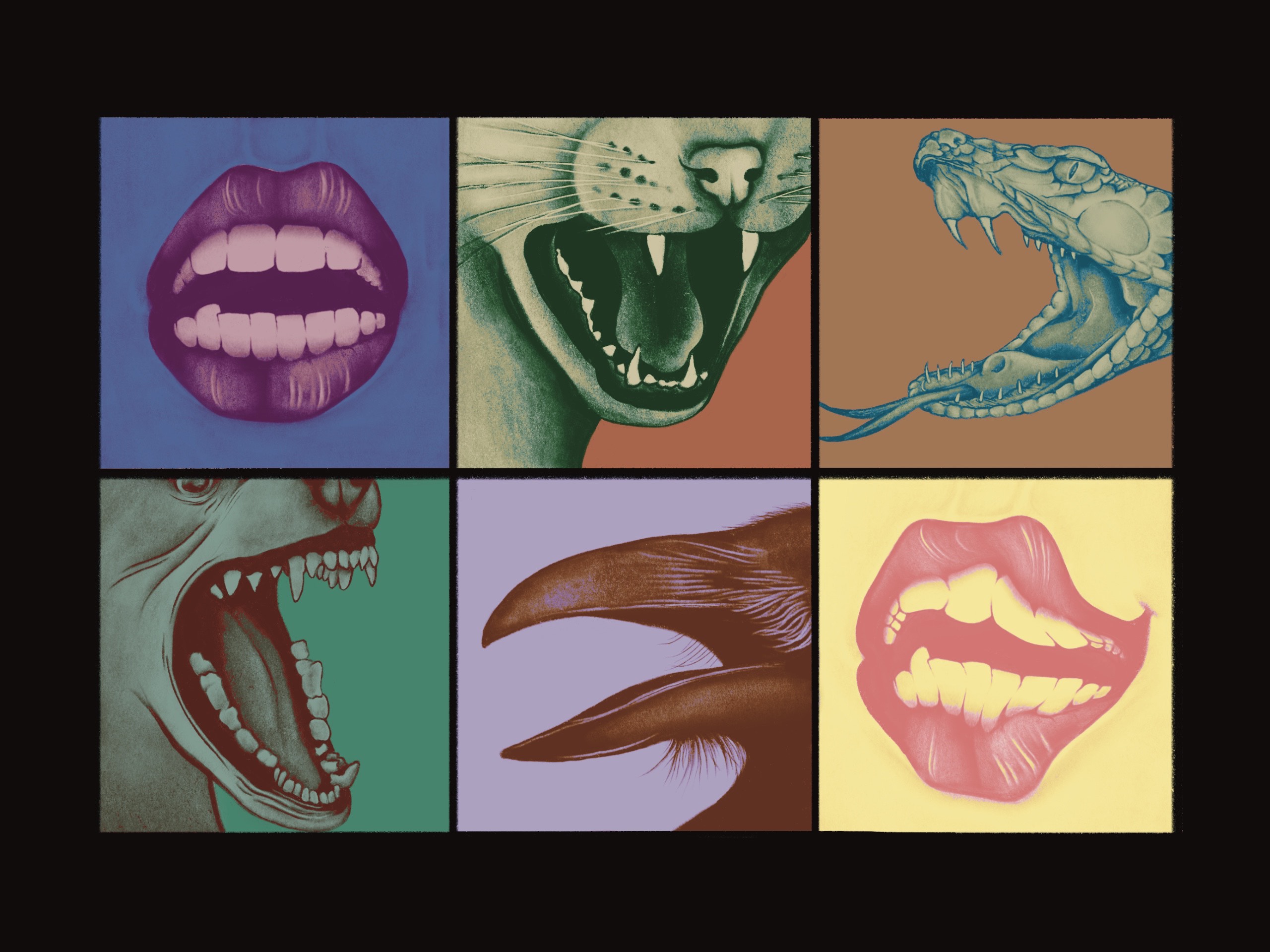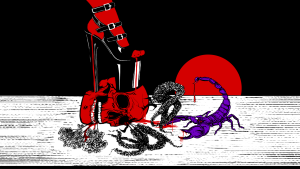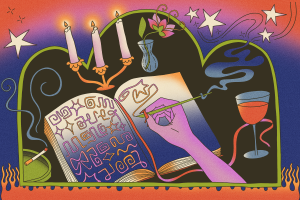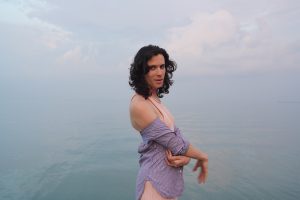Mouth is a collection with bite. The debut short story collection from Chicago-based fiction writer Puloma Ghosh, published by Astra House this June, incorporates elements of the surreal and fantastical and felt perfectly tailored to my taste, like literary catnip. Mouth is a collection meant to be devoured, and to devour the reader in turn. These immediately engrossing short stories capture and conjure whole worlds—places that both resemble our own and don’t.
In Mouth, characters with supernatural qualities or who live in dystopian circumstances ultimately still fall prey to petty human drama, motivated by their innermost desire to connect with others. Ghosh and I spoke as the summer was drawing to a close. During our conversation, we discussed the myth and burden of representation, her stories’ mythological and speculative worlds, and how her short story collection expands the canon of horror and horror-adjacent writing.
*This interview has been edited for concision and clarity
Meghana Kandlur: The book is dedicated to your matriarchal lineage. Could expand upon the role that storytelling played in your life growing up, and what you carry from it into your own writing? Did you show an interest in telling stories from an early age? Was there a point at which you decided to be a writer?
Puloma Ghosh: The dedication is because my mother and grandmother told me a lot of stories when I was young and those are formative memories for me. And also because I feel like they told me scary stories and I have always been fascinated with the macabre and horror. I felt like I should pay homage to and acknowledge that in my dedication.
I’ve always enjoyed [writing]. I started reading pretty young and then was addicted to it, so I have been a lover of storytelling for as long as I can remember. And then eventually I liked reading so much that I wanted to write my own versions of things and it kind of evolved from there.
I didn’t think about being a writer in any published sense until my last years of college. I hadn’t considered it a practical possibility or something that is achievable. I thought it was much more glamorous and difficult.
Then the actuality of writing, which is that so many people do it—felt more attainable as I got older and understood it more. And then I was like, well that’s what I’ve always wanted to do so I’m going to give it a shot.
MK: I love how the book blurs genre boundaries and conventions so there are elements of realism alongside elements of the supernatural and speculative. As a reader I felt like there were times when I initially thought that a story was set in “our world” and then it became clearer that it was a world kind of similar to ours but with its own specific set of often dystopian challenges. What inspired the worlds in your stories, and what draws you to depicting worlds that aren’t quite our own?
PG: I am a lover of science fiction, the fantastical and supernatural. I think it’s interesting. When I first started writing, I wrote a lot of fantasy. And then as an adult I was like, okay I should do more realism because that’s “serious,” but then I felt kind of stuck and unhappy with a lot of things I was writing when I did that.
The first time that I put in a speculative element, everything unlocked for me. My pleasure as a writer unlocked. The short answer is that I add stuff like that because I like it.
I also think it is a way to make your characters do interesting things, behave in interesting ways, and explore their internal lives in a kind of unexpected way that I find fun to play with and compelling to both write and read.
MK: How do you engage with existing canons, such as well trodden lore of the vampire or the werewolf, in your inventive stories?
PG: I do like to rewrite my own versions of existing fantastical characters or mythology. You get to draw from a kind of collective knowledge and then decide what you want to align with and what you want to subvert and that exercise in itself is fun.
“The Fig Tree” is a story that I wrote set in Kolkata about someone returning [home] and whose parents had immigrated. The creature in that story is from a folktale my family told me about growing up. It’s established Bengali folklore, but I, of course, took liberties. And also it’s fun—as a first-generation person who kind of understands the story but also doesn’t understand it quite as deeply as if I grew up there—to work from my imperfect knowledge. A lot of people who read the book don’t have an established knowledge of the [folktale], so it’s interesting to see how people read it differently given whether or not they know the source material.
MK: Desire runs through these stories like a current and is often paired with or comes along with darker feelings and impulses and urges such as fear and loneliness. I think the characters are haunted by their desires or by an absence or a longing for something or someone who isn’t present. Were there particular moods and feelings that you hoped to evoke for the reader through these stories?
PG: I think desire is a really interesting emotion that can have such a range. I bring it up over and over again because there’s something a bit monstrous about desire itself in how physical and obsessive it can be. We try to fill absences in our life with desire even if it doesn’t actually fix those things or fill those voids inside of us, especially because all the characters in these stories are very young. They’re teenagers to early 20s for the most part, and I think that’s something that people do especially at that age, when desire is particularly strong and feels extremely important.
MK: I feel like sexual desire is often a quintessential part of youth, and depicted as such in popular culture. But only through making the misstep of pursuing sexual desire, can you sometimes understand that’s ultimately not what you were looking for, or not the absence you were trying to fill.
PG: Totally. Something that I have done repeatedly in these stories is have the character pursue a sexual desire and find something monstrous on the other end. And I think that can be read as a metaphor, but I had fun doing it quite literally in a lot of these stories.
MK: Some of the stories are more explicitly queer and others kind of gesture toward queerness and existing associations in culture between queerness and monstrosity. How do you see queerness and queer desire in particular as manifesting through these stories?
PG: In some cases, I see it as a freeing. A lot of these characters are caught in the confines of their dystopian world. Queerness can sort of release them. Monstrosity is something that subverts our reality. When you consider [specific forms of] desire outside of societal norms, you also start to think of other things that can be outside of the societal norms as possibilities.
But I also wanted queerness to exist in these stories without necessarily being the focus. In the same way, I wanted the characters’ racial or cultural identity to exist in the stories without being the focus. I used to feel a lot of pressure to explore my marginalized identity on the page as a way to teach readers about my specific experiences. Now I really try to resist that. I think it can be useful, but I personally don’t have interest in doing it.
I try to incorporate those identities while allowing the characters to tell other stories. Does that make sense?
MK: It also kind of speaks to, essentially, using queering as a verb, as an action of sorts. It’s interesting. Through their queer desires, your characters are then able to queer their worlds in a sense, while the worlds themselves are also often queer in that they are different, speculative, dystopian, etc, compared to our own. But the characters themselves have known no other world and are able to look outside or seek and see other possibilities of existence through queerness, which I think is beautiful.
PG: Yeah, exactly.
MK: That engages with what you said about how the stories incorporate elements of characters’ racial and ethnic backgrounds and cultural backgrounds without being entirely focused on them. I really liked how some of your stories lean into this kind of “child-of-the-diaspora” element and some of them completely avoid it. Do you think that there are parallels between the outsider experiences of non-human monstrous beings, like the vampire girl, wolf boy, and lemon boy, and the experience of being the child of immigrants in a “cultural melting pot” like the U.S.? How do you see your own work as both engaging with the established tradition of diaspora literature and perhaps even expanding readers’ conceptions of what it can look like to be representative?
PG: I don’t like the term representative because it implies that a small subset of people can speak for a vast and diverse population. I think it’s an odd media term that people use in order to almost narrow the scope of what voices they amplify.
For myself, no matter what I write, it will always be representative of my background because I am a diaspora child. Everything I write will have that perspective because that’s who I am. So I don’t necessarily intentionally try to speak about my experience, [but] I know that I’m always speaking about my experience because that is the lens I see the world through.
MK: So, you’re not actively striving to write “diaspora literature,” but by nature of being a child of the diaspora and being a writer, you are engaging with it on your own terms by putting your work into the world. Your writing is obviously informed by your specific cultural experience and readers out there might find points of recognition or feel seen by it, but that’s not necessarily your intention because you don’t want to claim to “represent” such a broad cultural perspective as an individual.
PG: Yes, that’s exactly it. In these stories, there is a [theme] of othering, and I think that’s something that you feel strongly if you grew up an immigrant because you identify with the country where you grew up. But other people decide that you are not part of this [national] identity.
I didn’t grow up in a particularly diverse area that had a lot of South Asians, so I felt my otherness a lot. The only way we can achieve any kind of “actual representation” is to have a wide variety of stories from a diverse array of writers and media producers, content producers, and cultural creators out there.
MK: I feel like in a way you are just joining an existing tradition or adding one more voice that people have a chance to maybe see themselves in.
PG: Yeah, exactly.
MK: Horror as a genre has gotten more diverse in recent years but there is this overarching dominant narrative of whiteness within it, as there is with most [Western] culture. And it’s beautiful to see so many Black, brown, and queer writers and filmmakers, etc. adding different stories to that canon.
PG: 100%, especially because the existing tropes of horror and science fiction and fantasy are very Western centric. It’s been wonderful to see these genres expand, because it was getting stale. I agree, seeing more Black and brown and Asian creators expanding genre is really exciting and happening a lot lately, and I just love to be a part of that.
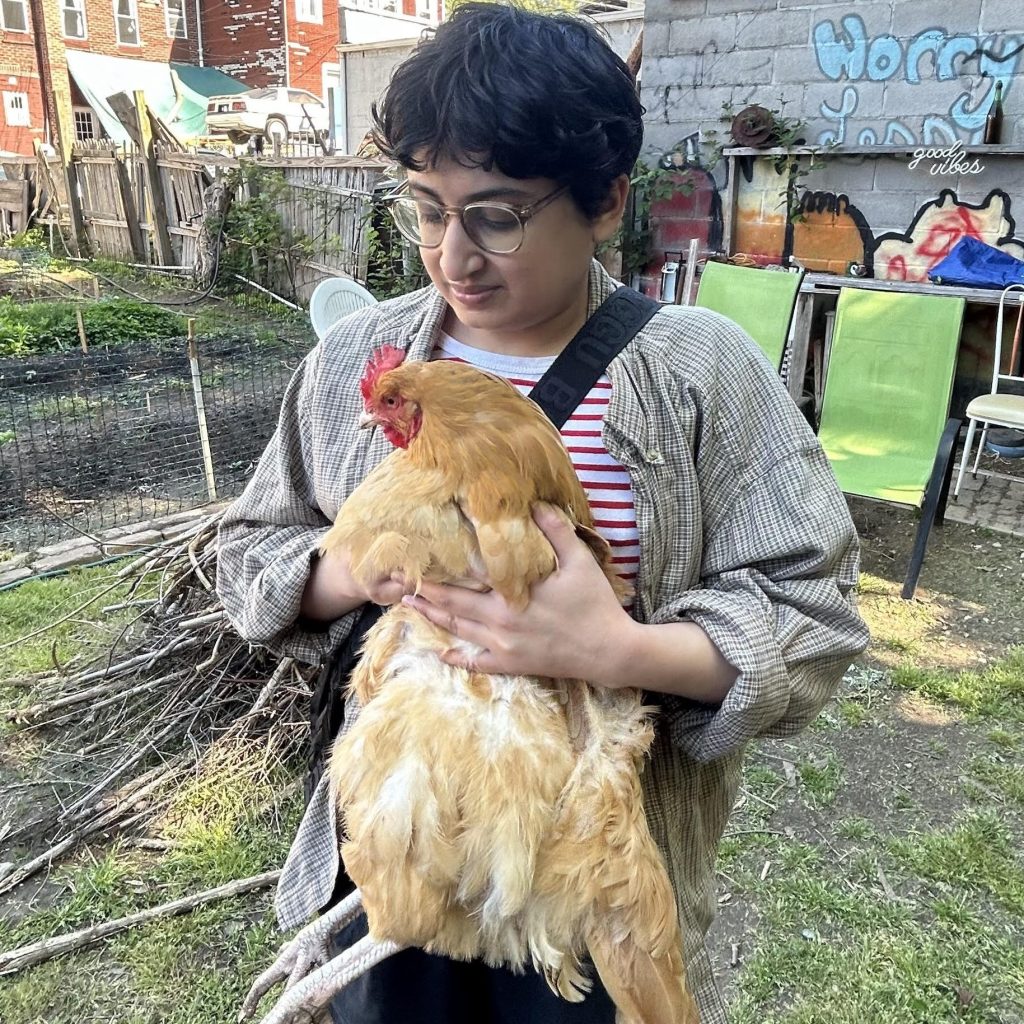
About the author: Meghana Kandlur is a reader, writer, and bookseller based in Chicago, IL. They are interested in all that prose can be.
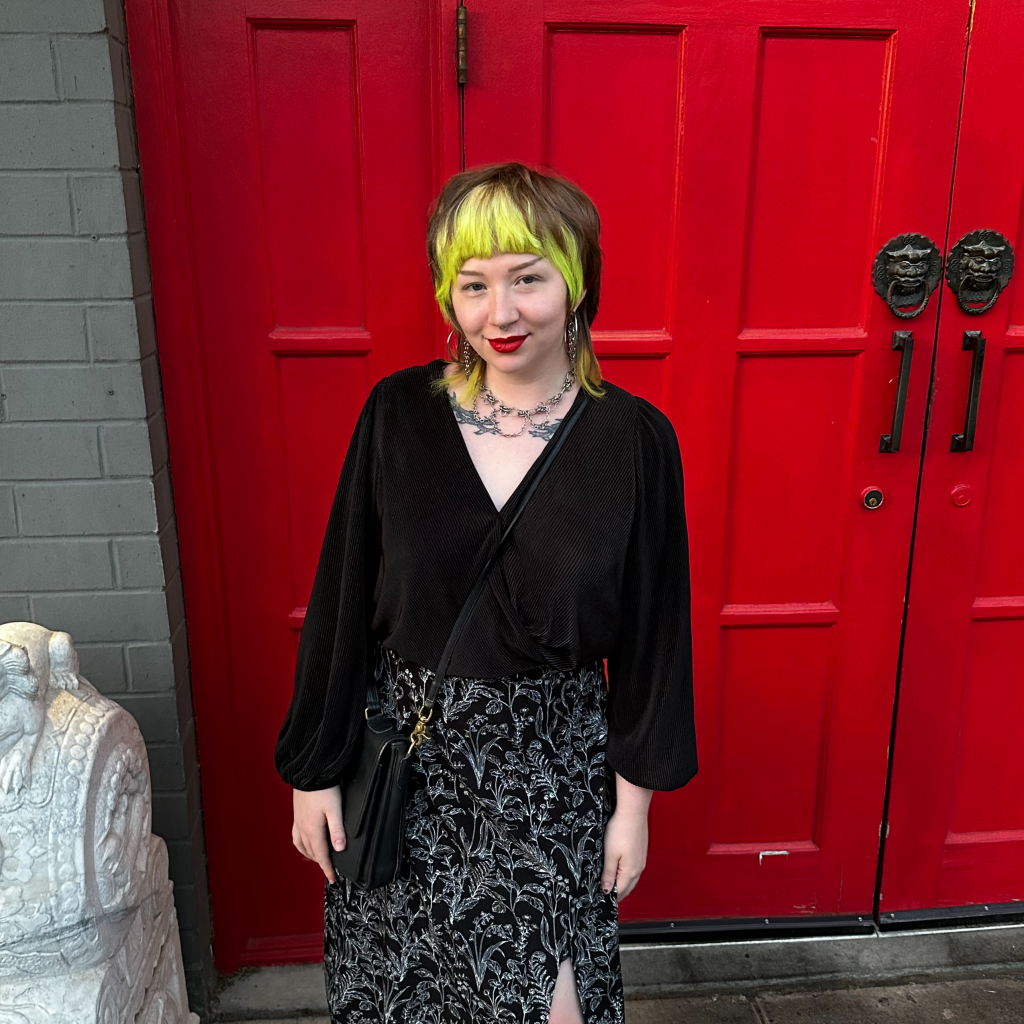
About the illustrator: summer mills (she/her) is a printmaker, illustrator, and graphic designer from Chicago. Her work is inspired by the art nouveau movement, religious/spiritual imagery and concepts, music, and various types of literature. For her, the enjoyment of creation is the patience and trust it requires her to practice.
